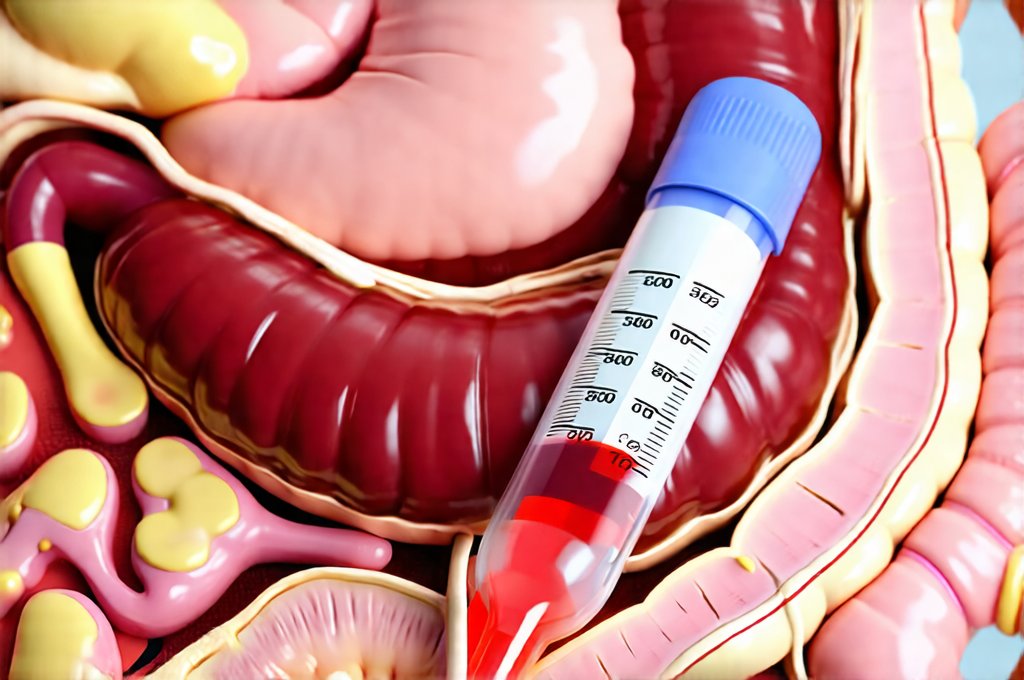Digestive health is often an overlooked component of overall well-being, yet it profoundly impacts everything from nutrient absorption and energy levels to immune function and even mental clarity. Many individuals only pay attention to their digestive system when problems arise – bloating, discomfort, irregular bowel movements – but a proactive approach can prevent these issues and identify potential concerns early on. Regular assessment isn’t about anxiously searching for illness; it’s about understanding your body’s unique needs and ensuring optimal function. A healthy gut is the foundation of systemic health, and investing in its maintenance is arguably one of the most effective steps you can take towards a longer, healthier life.
The ‘one-size-fits-all’ approach to healthcare rarely yields the best results, and this holds true for digestive testing. What’s “worth” doing yearly varies considerably depending on age, family history, lifestyle factors (diet, stress levels, medication use), and existing symptoms. This article aims to provide a comprehensive overview of tests that are generally beneficial for maintaining digestive health, acknowledging that individual circumstances should always guide specific decisions in consultation with a healthcare professional. We will explore both readily available options and more specialized assessments, clarifying their purpose and highlighting when they might be particularly valuable. It’s important to remember these tests aren’t replacements for consistent healthy habits—they are tools to inform those habits and address potential issues proactively.
Routine Screening & Early Detection
Many digestive issues develop gradually over time, often without noticeable symptoms in the early stages. Therefore, incorporating some basic screening into your annual check-up can be highly beneficial. This doesn’t necessarily mean undergoing complex procedures; it often starts with a thorough discussion with your doctor about your bowel habits and any changes you’ve observed. Simple questions regarding stool consistency, frequency, and the presence of blood are crucial first steps. Beyond this initial assessment, several readily accessible tests can provide valuable insights.
A yearly fecal immunochemical test (FIT) is now widely recommended for colorectal cancer screening, beginning at age 45, though earlier testing may be advised based on family history or other risk factors. This non-invasive test detects hidden blood in the stool, which can be an early sign of polyps or cancer. It’s considerably more convenient than a colonoscopy and serves as a good initial screen; positive results typically necessitate further investigation with a colonoscopy. Another useful (though less frequently recommended annually for everyone) screening tool is testing for Celiac disease if there’s a family history or related symptoms, even mild ones like fatigue or unexplained anemia. Celiac disease can have subtle presentations and early diagnosis is critical to prevent long-term complications. If you are concerned about underlying causes, consider which gi tests may be useful for skin issues.
Finally, regular monitoring of gut microbiome composition, while still evolving in terms of accessibility and standardized interpretation, is gaining traction. At-home stool tests that analyze the diversity and balance of gut bacteria are becoming more common, providing insights into potential imbalances linked to various health conditions. These results should be interpreted with a healthcare professional who can help determine appropriate dietary or lifestyle modifications. The goal isn’t necessarily to achieve a ‘perfect’ microbiome but rather to understand your individual microbial ecosystem and make informed choices to support its overall health. If you have concerns about the costs, explore which digestive tests are covered by insurance.
Understanding Stool Tests: Beyond the Basics
Stool tests are far more versatile than simply detecting blood. Several types offer detailed information about digestive function and potential issues. – Fecal Calprotectin is a marker of intestinal inflammation, helping distinguish between inflammatory bowel disease (IBD) like Crohn’s disease and ulcerative colitis from functional gastrointestinal disorders such as irritable bowel syndrome (IBS). Elevated levels warrant further investigation, usually involving colonoscopy and/or endoscopy. – Stool Culture identifies the presence of harmful bacteria or parasites that may be causing infection or digestive upset. This is especially useful when experiencing acute diarrhea, abdominal cramping, or fever. – Fat malabsorption tests, though less common as routine yearly screening, can identify issues with fat digestion and absorption, potentially indicating pancreatic insufficiency or other conditions affecting nutrient uptake.
The process of collecting stool samples correctly is vital for accurate results. Most kits provide detailed instructions, but generally involve collecting a small amount of stool into a sterile container, following specific guidelines regarding timing and storage. It’s important to avoid contamination from toilet water or other sources. Proper collection ensures the test accurately reflects your digestive health at that moment. Furthermore, interpreting stool test results requires expertise. Don’t attempt self-diagnosis; always discuss findings with your doctor who can correlate them with your symptoms and medical history to develop an appropriate plan. If you are concerned about parasites, review which digestive tests work best for detection.
The Role of Breath Tests in Digestive Assessment
Breath tests are non-invasive methods for assessing carbohydrate metabolism and identifying potential bacterial overgrowth in the small intestine. – Lactose breath test detects lactose intolerance by measuring hydrogen levels in breath after consuming a lactose load. Elevated hydrogen indicates that your body isn’t properly digesting lactose, leading to fermentation by gut bacteria. – Small Intestinal Bacterial Overgrowth (SIBO) breath test, usually using glucose or lactulose, identifies excessive bacterial presence in the small intestine. SIBO can cause bloating, gas, diarrhea, and nutrient malabsorption.
Breath tests are relatively simple to administer but require adherence to specific pre-test dietary restrictions and preparation protocols. For instance, avoiding antibiotics, probiotics, and certain foods for several days before the test is often necessary to ensure accurate results. Like other digestive tests, interpretation should be done by a healthcare professional who can distinguish between normal variations in breath hydrogen levels and those indicative of an underlying issue. These tests are particularly helpful for individuals experiencing chronic bloating or unexplained digestive symptoms despite negative findings on traditional stool tests.
Endoscopy & Colonoscopy: When Are They Necessary?
While not typically performed annually for everyone, the timing of endoscopy and colonoscopy is crucial for preventative care, especially as you age or if you have risk factors. – Colonoscopy remains the gold standard for colorectal cancer screening, recommended starting at age 45 (or earlier based on family history). It allows direct visualization of the entire colon to detect polyps, which are often precursors to cancer. Polyps can be removed during the procedure, preventing progression to malignancy. – Endoscopy (upper endoscopy) examines the esophagus, stomach, and duodenum, useful for investigating symptoms like heartburn, difficulty swallowing, or unexplained abdominal pain. It can also diagnose conditions such as ulcers, gastritis, and Barrett’s esophagus. If you are preparing for surgery, consider digestive tests that should be done beforehand.
These procedures require bowel preparation (for colonoscopy) or fasting (for endoscopy). They are typically performed under sedation to minimize discomfort. While considered invasive, the benefits of early detection and prevention far outweigh the risks for individuals at higher risk of developing digestive cancers or other serious conditions. The frequency of repeat colonoscopies is determined by initial findings – if polyps were removed, follow-up exams are scheduled based on their size and number. A proactive approach to screening can significantly reduce the incidence and mortality associated with these diseases. Understanding how tests help explain appetite loss is also important for overall health. And if your digestion is affected by emotions, digestive tests can provide insight.
The information provided in this article is for general knowledge and informational purposes only, and does not constitute medical advice. It is essential to consult with a qualified healthcare professional for any health concerns or before making any decisions related to your health or treatment. Also consider tests that connect digestive and neurological symptoms.


















